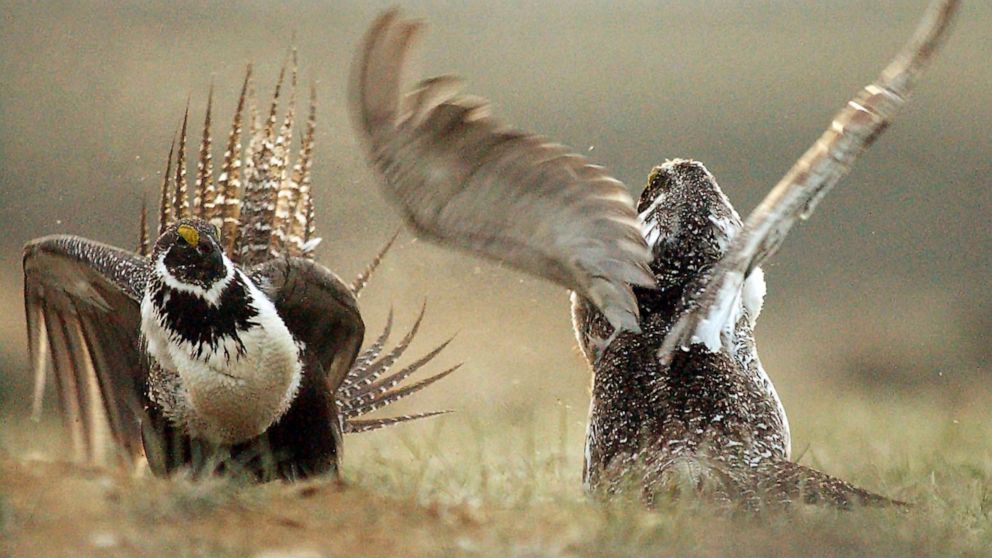Judge strikes down US energy leasing rules in bird habitat
A U.S. judge has dealt a setback to the Trump administration’s efforts to increase domestic oil and gas exploration
By
MATTHEW BROWN Associated Press
May 26, 2020, 9:19 PM
3 min read
3 min read
BILLINGS, Mont. — A U.S. judge has dealt another blow to the Trump administration’s efforts to increase domestic oil and gas output from public lands, saying officials failed to protect habitat for a declining bird species when it issued energy leases on hundreds of square miles.
Judge Brian Morris said the Interior Department did not do enough to encourage development outside of areas with greater sage grouse, a ground-dwelling bird whose numbers have dropped dramatically in recent decades.
The judge canceled energy leases on more than 470 square miles (1,200 square kilometers) of public land in Montana and Wyoming. That means officials will have to return millions of dollars in sales proceeds to companies that purchased the leases.
The leases at issue already had been invalidated in previous cases that went through other federal courts. But the latest ruling, handed down Friday, appears to go further and strike at a key component of the administration’s broader energy policy.
”The errors here occurred at the beginning of the oil and gas lease sale process, infecting everything that followed,” Morris wrote.
Megan Crandall, a spokesperson for Interior’s Bureau of Land Management, said Tuesday that the agency stands behind the leasing guidelines it issued in 2018.
“We assert that all of our lease sales are on sound legal footing and in full compliance” with federal environmental law, she said.
Sage grouse range across about 270,000 square miles (700,000 square kilometers) in parts of 11 Western U.S. states and two Canadian provinces. Their numbers have plummeted due to energy development, disease and other factors.
The birds are known for an elaborate mating ritual in which males fan their tails and puff out yellow air sacs in their chests as they strut around breeding grounds known as leks.
Under former President Barack Obama, the Interior Department delayed lease sales on millions of acres of public land largely because of worries that intensive development could harm sage grouse. In 2015, it adopted a set of wide-ranging plans meant to protect the best grouse habitat and keep the bird off the threatened and endangered species list.
After President Donald Trump took office in 2017, the agency modified those plans to ease restrictions on development, which meant officials no longer had to prioritize development outside grouse habitat. The changes prompted a 2018 lawsuit from Montana Audubon, the National Wildlife Federation and other environmental groups.
Mike Freeman, an attorney for the environmental groups, said the case has exposed a flaw in the Trump administration’s policies that could affect more than a million acres of leases in addition to those covered by the ruling, including in Utah, Colorado, Nevada, Wyoming and Montana.
“We’re challenging the entire national policy,” Freeman said. “There were many other leases sales where it’s been applied, and those lease sales have the exact same legal flaws.”
The states of Wyoming and Montana and the Western Energy Alliance, an energy industry group, had intervened in the case on the side of the Trump administration.
Western Energy Alliance President Kathleen Sgamma noted that some of the cancelled leases had been sold before the Trump administration’s policies went into full effect. She predicted the judge’s ruling would be overturned on appeal.
“I like our chances of success,” Sgamma said. “The bottom line is a new administration has the ability to change policies as long as they do it properly, and the Trump administration has done it properly.”
![]()


